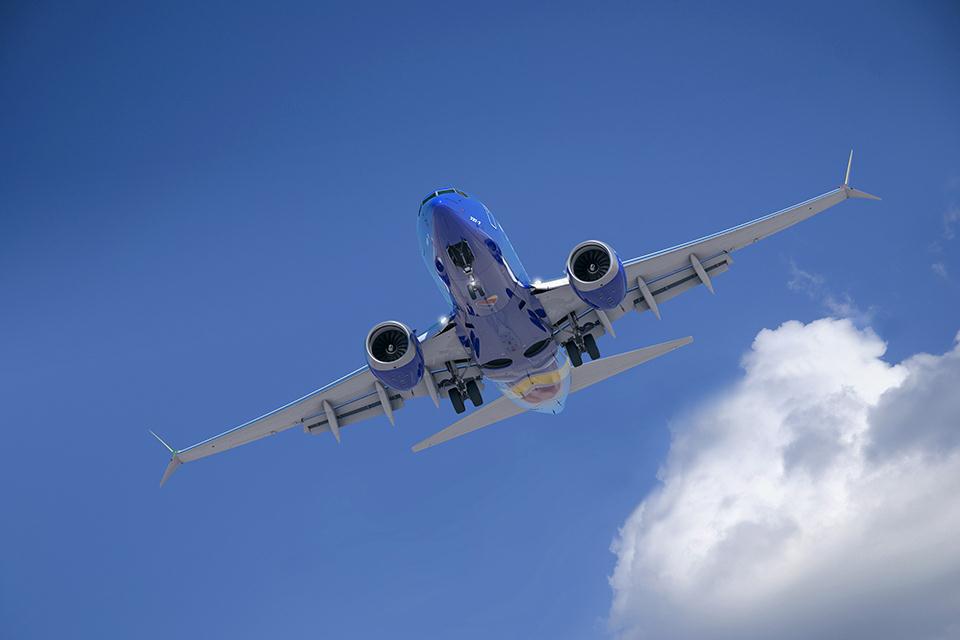Boeing has expressed its regrets and continued commitment to work with regulators amid fresh concerns raised by the release of internal instant messages between test pilots, acknowledging problems with the 737 MAX anti-stall system as early as November 2016.
The American planemaker submitted the internal messages to the US Federal Aviation Administration (FAA) as part of the still-ongoing investigation over the deadly crashes in Indonesia and Ethiopia involving the 737 MAX jets.

737 MAX “trimming like crazy” in early simulations
Reuters first reported that in the released internal messages, then Boeing chief technical pilot for 737 Mark Forkner told colleague, technical pilot Patrik Gustavsson, that the so-called MCAS anti-stall system was “running rampant” in a flight simulator session, confirming that top pilots had identified safety concerns with the MAX years ago.
The same problem was later on linked to the Lion Air and Ethiopian Airlines crashes, that killed 346 people.
“Shocker alert! MCAS is now active down to M .2. It’s running rampant in the sim[ulator] on me,” Forkner, who has moved to Southwest Airlines last year said in a message to Gustavsson on November 16, 2016.
“I’m levelling off at like 4000 ft, 230 knots and the plane is trimming itself like crazy,” Forker added, further saying that the MCAS problem was “egregious.”
Gustavsson, who was promoted Boeing’s 737 chief technical pilot in 2018, also confirmed a similar experience in the conversation.
“That’s what I saw on sim[ulator] one, but on approach. I think that’s wrong,” he added, noting that they should ask colleagues “to confirm what it’s supposed to be doing.”
FAA was not informed about early findings
During the exchange of messages three years ago, it was also revealed how the FAA was kept blindsided.
“I basically lied to the regulators (unknowingly),” Forkner said. To which, Gustavsson replied: “It wasn’t a lie, no one told us that was the case.”
In a separate set of emails from Forkner to FAA officials, reported by The Washington Post, it was found how Boeing purposedly remove references to the MCAS from the Flight Crew Operating Manual, saying it is “way outside” the normal instance that pilots have to face.
But aviation experts said the move to skip the reference to the anti-stall system “meant the FAA board that considers requirements for preparing pilots was not in a position to adequately assess training needs.” Thus, raising doubts on whether pilots know MCAS existed, as Boeing withheld any information about it in the pilot manuals.
“[I’m] doing a bunch of travelling through the next few months,” a 2016 email from Forkner to an FAA official said, adding that he would be “Jedi-mind tricking regulators into accepting the training that I got accepted by the FAA etc.”
Reuters said Boeing had turned over the said transcript to the Justice Department in February, a month before the second deadly crash involving the B737 MAX in Ethiopia but not to the FAA because “the company did not believe it could turn the messages over initially because of the Justice Department probe.”
In a letter to Boeing chief executive Dennis Muilenburg, FAA Administrator Stephen Dickson said: “I expect your explanation immediately regarding the content of this document and Boeing's delay in disclosing the document to its safety regulator.” The FAA also said it “finds the substance of the document concerning” and the regulator is disappointed that “Boeing did not bring this document to our attention immediately upon its discovery.”
Boeing commits to further cooperating with authorities
“We understand entirely the scrutiny this matter is receiving, and are committed to working with investigative authorities and the US Congress as they continue their investigations,” Boeing said in its statement following the reports.
The latest issue over the banned 737 MAX planes come amid mounting pressure on the Chicago-based Boeing to return to service roughly 500 planes grounded for eight months which has reportedly cost the world’s largest planemaker at least $8 billion.
Boeing also had to deal with the financial burden with order cancellations, cost of production and investigations prompted by the FAA and the US Congress.
The US regulator said it is “reviewing this information to determine what action is appropriate” and Boeing assured FAA that it is taking “every step possible to safely return the MAX to service.”
Earlier this month, Boeing announced top management changes stripping Muilenburg of his chairman position to let him focus on full time on running the company as it works to return the 737 MAX to the skies. David Calhoun was named the new chairman.
The American planemaker also set-up a permanent Aerospace Safety Committee to execute Boeing’s efforts to focus on wide-ranging safety, engineering and design changes to ensure its clients of the company’s commitment to product and services safety. This would include, among others, ensuring safe design, development, manufacturing, production, operation, maintenance and delivery of the company's aerospace products and services.
The 737 MAX jets have been grounded worldwide since March, hitting the bottom line of flight operators. Boeing has since then been working on a software fix for the anti-stall MCAS system as part of the recertification process although it remains unclear when the FAA will clear the Boeing to resume the 737 MAX service.




